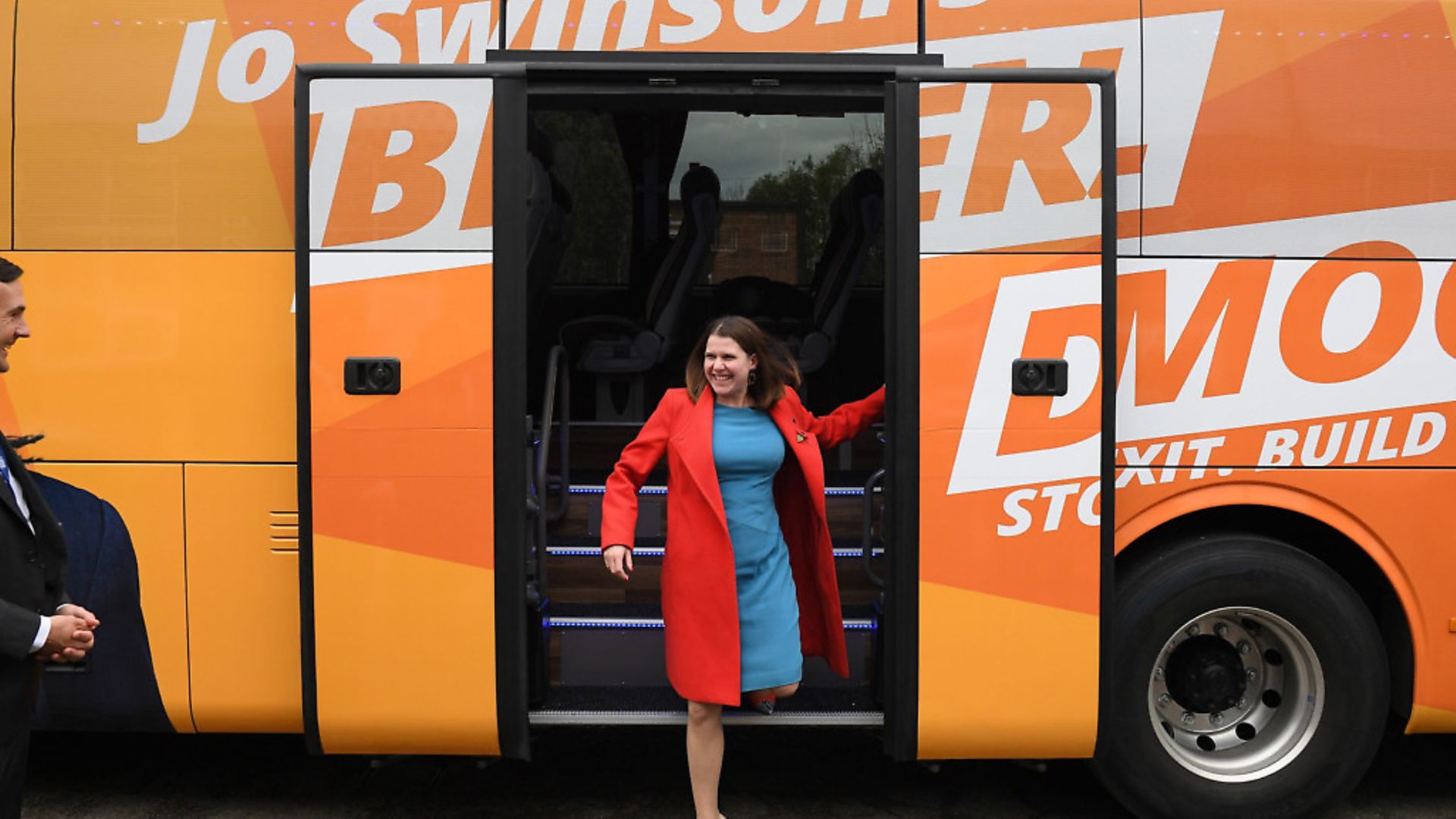
The Liberal Democrats are beginning to regret several general election campaign decisions, including the promise to revoke Article 50 if they receive a majority, according to reports.
The confidence the party enjoyed during the summer has faded somewhat, reports the FT, with expectations of 60 to 80 seats now cut to 40 at best.
At the party conference in October, Swinson set out a vision for taking the Lib Dems from third party status to challenger for government, triumphantly stating: “I stand before you as your candidate for prime minister.”
This message was continued at the start of the general election campaign, but with two weeks to go before the vote, the party has adopted a less ebullient stance.
One senior party figure told the FT that the mood is one of “concern, close to despair”, while reports suggest the party is beginning to regret its hardline stance on Article 50.
The policy polled extremely well amongst party faithful during the summer, when there were numerous high-profile defections to Swinson’s party and Labour was in a tumult of confusion over its Brexit position.
After Labour confirmed it would offer a second referendum on Brexit, the revoke policy was a means for the Lib Dems to define themselves clearly as the party of Remain.
“I don’t have a time machine, but I’d say we probably didn’t need to have gone full on revoke knowing what we do now about Corbyn’s stance”, one party adviser told the FT. “It might have put some people off.”
This has seen the party change its tone in recent interviews, conceding that the Conservatives are likely to take the lead.
The party’s messaging has now switched to arguing that they are best-placed to deprive the Tories of a majority.
However, Swinson has refused to say which party she might back in the event of a hung parliament.
WATCH: Lib Dem deputy leader doesn’t rule out party propping up Tories for a People’s Vote“Changing the tone mid-campaign isn’t how you’d draw it up at the start,” said one adviser. “But it’s better to show flexibility than blithely carry on.”
Further deflating the party’s early ambition is the finding that Jo Swinson’s visibility – the result of an early decision to conduct a presidential-style campaign – has polled badly with voters.
The party’s exclusion from the ITV leaders’ debate also deprived Jo Swinson of the chance to attract voters to her message.
MORE: High court rules ITV leaders’ debate can go ahead without Lib Dems or SNPMeanwhile, all left-of-centre parties were damaged strategically by the Brexit Party’s decision not to stand candidates in Conservative-held seats, warding off the danger of the rightwing and hard Brexiteer vote being split.
Tim Bale, a politics professor at Queen Mary University of London, told the FT:
“We shouldn’t forget that, more often than not, the remorseless logic of first-past-the-post will see the UK’s third party ground between the Tory and Labour millstones — unless of course, as in 2010, its leader is given equal and therefore game changing access to a three-way leader’s debate.
“But, in hindsight, the Lib Dem’s decision to promise revocation of Article 50 and all the early nonsense about Jo Swinson becoming prime minister may have proved counterproductive.”
Warning: Illegal string offset 'link_id' in /mnt/storage/stage/www/wp-includes/bookmark.php on line 357
Notice: Trying to get property 'link_id' of non-object in /mnt/storage/stage/www/wp-includes/bookmark.php on line 37






